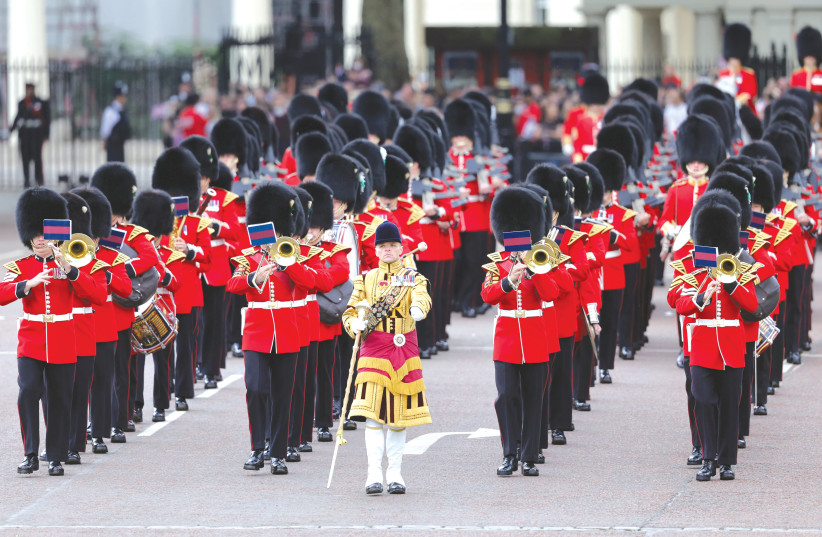Elizabeth II is marking seventy years on the British throne. The people of the United Kingdom and the Commonwealth countries hold her in great affection and admire the dignity with which she has carried out her royal duties for all those decades, overcoming family crises and keeping Britain colorful and interesting.
During my rabbinical career in Britain and Australia, I recited a prayer for the queen and the Royal Family every Shabbat and festival, investing sincerity and meaning in every word, even though my personal views are Republican.
I well recall one of the Queen’s visits to Australia when I was presented to her by the state premier of New South Wales and she was very gracious to me. I also met the Prince of Wales who told my wife that he had heard that Sydney’s Great Synagogue was a wonderful heritage building, which he would like to visit some time.
One of the Australian debates which could resurface any moment is whether to keep the Queen as the nation’s monarch. Australians love and respect the Queen but when she dies the issue will arise again. Whether this will transpire in the term of office of the new government which took office in Australia last weekend is a moot point, but one hopes that rationality and not romanticism will be the deciding factor.
A couple of decades ago there was a referendum on whether Australia should break away from English apron strings and become a republic with an Australian head of state. One of the television stations asked twenty leading Australians for their views. Nominated as one of the twenty, I was interviewed one morning in the Great Synagogue. Knowing that many Jews were monarchists who did not share my republican stance, I told the TV interviewer that it all depended on the Queen herself.

Australia and the Queen
For the time being she had the support of most Australians. It was up to her to decide how much Australia mattered to her and the other royals. If it did, she would acquire a home in Australia, spend a few months there every year and barrack for Australia in the cricket Ashes.
British and Commonwealth citizens are used to a constitutional monarchy in which the sovereign is answerable to the parliament and people. If Australia became a republic, there would not be a hereditary monarch but an elected figurehead chosen by means of a mechanism approved by Parliament and endorsed by popular referendum.
IN BIBLICAL times, kingship was the axiomatic form of government. The word “king” as we see from the first chapter of Kohelet and the second of the 150 Psalms does not always mean a national leader but can connote a chieftain or a property holder. Kings of all kinds had power – often, absolute power – in ancient times, but were subject to theological as well as political constraints.
They were answerable to God, who imposed limits on who the king could be and how he should conduct himself. The Talmud said, “Kingship on earth echoes kingship in Heaven” (Berachot 58a). God withdrew to some extent so that earthly kings could exercise sovereignty. God is the Supreme King of Kings. Priests and prophets are His spokesmen, appointed to keep the earthly kings in line.
Biblical Israel clamored for a king like other nations but found that kings can be tyrants. The Prophets reports how Solomon was followed by reprehensible successors. Kings spoke about justice but did not always practice it.
A balanced view comes in the writings of the medieval scholar and statesman Isaac Abarbanel, who prefers a republic to a monarchy. In a republic, the deciding point is not who your father was or whether anyone can expect to hold power for life. In a republic, people have more say in the nature of their government.
Though he knew good monarchies and bad republics, Abarbanel thought that, on the whole, a republic has its advantages. The Mishna saw signs of quality in all governmental options when it said (Avot 3:2), “Pray for the welfare of the government, since without fear of authority people would eat each other alive”.
The customary prayer for those who hold authority begins with words from Psalm 144:10, “He who gives salvation,” (i.e. manages the destiny of kings). Some Anglo-Jewish officiants have found these words difficult.
Like monarchies, republics had built-in controls. God placed limits on all governments, though how the limitations worked was not fully spelled out. In due course, though, and not without occasional convulsions, British monarchs have learned to integrate their royal status with parliamentary democracy. The Australians, like the Brits, acknowledge the economic and emotional benefits that accompany a constitutional monarchy. Most Australians have a warm feeling for the Queen as a nice elderly person who combines political status with personal stature.
But probably most Australians would prefer an elected head of state who feels deeply about the quality of Australian society, about the cleanliness of Australian streets, the decency of Australian democracy, the right of every Australian to a place in the sun, and a range of other issues of our time. Australians want Australia to be a good place for every Australian.
The writer is emeritus rabbi of the Great Synagogue, Sydney.
